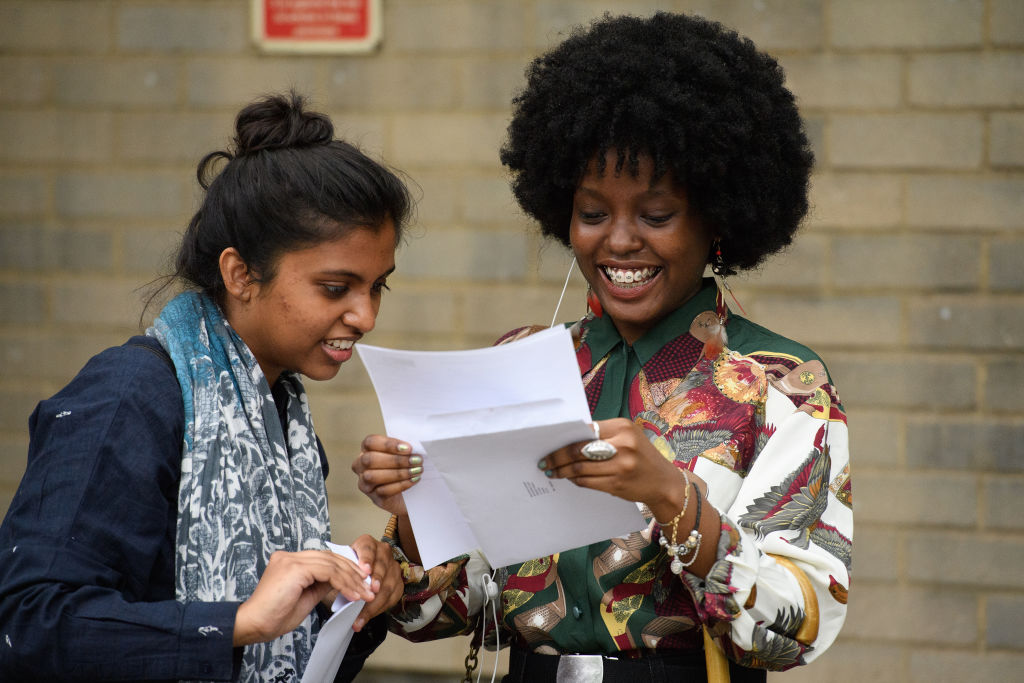I was homeless at 16, and sofa-surfed throughout my A-Levels. Despite my circumstances, I worked hard and now hold offers from some of the best universities in the country — Cardiff being my firm choice — to study law. Yet I’m terrified that because this year’s results won’t be based on exams but on predicted grades, I will miss out without ever having had a chance to prove myself. Hearing about the fiasco in Scotland — where thousands of pupils got worse grades than they were expecting — has only made me more concerned.
While those in younger years may be celebrating the longest summer holiday in modern British history, my fellow Year 13s and I haven’t seen much cause for celebration. After 14 years of compulsory education, the thought of leaving without having sat so much as a single A-Level exam feels like the ultimate anti-climax.
My friends are angry and scared. I am too. But for slightly different reasons. After becoming homeless at 16, I worked three jobs alongside my full-time education and, at times, doubted that I would make it to the end of A-Levels without dropping out.
I can feel that dream of achieving top grades and attending a top university slipping away
But after years spent in an endless work-school limbo, I finally felt I was on-par with my peers. Not better, not worse, just the same. The prospect of three As at A-Level is a pipe dream for many in my position, but it truly seemed like I would achieve the unachievable.
Only six per cent of care leavers go into higher education on an average year, and just 8,173 estranged students — who, like myself, have no parental support or are supported by social services — are enrolled in university this academic year. Pupils from low-income backgrounds, such as those who have experienced homelessness or poverty, are already at a disproportionate disadvantage when it comes to academic achievement and future prospects.
After all, how can you attend class if you have no way of getting there? How can you focus if you were up all night working a minimum wage job to pay your rent and afford the food shop? How can you get your eight hours’ sleep if you don’t have a bed? These are the kinds of questions that disadvantaged students like me ask themselves every day, and yet they make the most of what they have; working their hardest to overcome the odds.
But imagine doing all that, and still being unable to achieve. Not because you aren’t smart enough or because you couldn’t hack it, but because you didn’t even get the chance to try.
Without a family to back me up or argue that I deserve higher grades than whatever is pulled out of thin air this August; and with little formal process of appeal for students, how can I, or any other student like me, feel anything but dread when thinking about A level results day next week? While I am sure that teachers will do their best to provide accurate assessments, there can be no question that mistakes happen and that those from impoverished backgrounds are much more likely than their more affluent peers to be predicted an E at A-Level.
You see, at my school, only 3.1 per cent of students are eligible for free school meals — I am one of them. At my school, at least 24 per cent of students achieve AAB, with many going above and beyond that — I had not been expected to be one of them. For students like me, who have the potential to attend top Russell Group universities but not the financial means, a stellar set of A-Levels is like a golden ticket out of poverty.
But, much like a golden ticket, this dream was perhaps too good to be true. I can feel that dream of achieving top grades and attending a top university slipping away. Because the reality is that exam cancellations and school closures will almost certainly widen the gap in educational achievement between poorer pupils and their more socio-economically secure peers.
In ‘ranking’ students from most to least likely to achieve, students like myself will almost always find themselves at the bottom of the pile. We are already severely under-represented in universities across the UK, and there is a strong possibility that the class of 2020 will be even further devoid of disadvantaged students.
If young people are to be at the heart of the coronavirus recovery strategy, that must include all of us. In taking ‘a range of evidence and data’ into account when deciding a student’s capacity for success, disadvantage must be a criterion that is seriously considered.






Comments